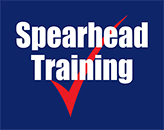Description
Who Should Attend?
Department heads, managers, prospective managers, senior supervisors, team leaders, and others who need to develop their managerial skills for enhanced performance and career progression.
About The Programme
Run successfully over the past 21 years in the Gulf region, and continually updated, this is an intensive programme addressing key management issues, with clear, practical guidelines every step of the way. Tutorial sessions, real-life case studies from the Gulf region, practical exercises, presentations, and syndicate work make this an action-packed five-day course. Day Five focuses on HR / Human Capital issues – recruitment, interviewing techniques, and appraisals.
Course Objectives
- To set clear guidelines for effective management
- To work through the key management skill areas, identifying the managerial role
- To raise self-awareness, recognise limitations, and identify areas for improvement
- To fully appreciate the ‘tool-kit’ required for the first-class manager, e.g. delegation, leadership, motivation, time management, communication skills, planning and organizing, teambuilding skills, etc.
- To understand the contribution managers make in the development of others
- To learn to work in a ‘proactive’ manner, whilst staying aware of the parameters within which you must operate
- To identify your strengths as a manager, what your development needs are, and to try to do the same for those you manage
- To develop action plans for continuous development in the workplace
- To provide a comprehensive framework for future development
What You Will Gain
- A clear understanding of the attributes of an effective manager
- An insight into your current leadership and influencing style, and helpful tools for identifying areas for ongoing development
- An awareness of the traps and pitfalls that can lead to management failure, and the strategies for avoiding them
- Through interactive exercises, you will gain a clearer understanding of how to manage individuals, groups, and tasks, more effectively
- Enhanced communication and time management skills
- A set of practical skills, and useful information to draw on, for maximum achievement in the workplace
Programme Content
DAY ONE
- What Do Managers Do?
- How Do We Define ‘Management’?
- How To Get Your Staff On ‘The Road To High Performance’
- Eight Reasons For Failure As A Manager
- The Management Wheel
- The Functions And Responsibilities Of Management
- Key Management Tasks And Competencies
- Being A Proactive Manager
- ‘Managing’ Vs ‘Doing’ – What Is The Difference?
- Understanding The Concept Of Competencies
- Management Theories
> Henri Fayol’s 14 Principles Of Management
DAY TWO
- Management Theories (Continued)
> Some Well-Known Theories Of Management
> Adapting Your Style - Your Preferred Leadership Style – Self-Appraisal
- Leadership
- Leaders And Managers – Is There A Difference?
- The Skills, Qualities, And Behavioural Attitudes Required To Be An Effective Leader
- The Challenge Of Leadership
- Action-Centred Leadership
- Six Leadership Strategies
- Understanding Motivation
- Key Motivators And Demotivators In The Gulf Workplace
- Dealing With Demotivation
- Ways To Motivate People
- Communication
> Why Is Good Communication Important?
> How A Message Flows
DAY THREE
- Communication (Continued)
> How Do We Communicate In Business?
> Assessment – Analysis Of Time Spent Using Different Communication Methods
> Skilled Communication – The Five ‘C’s
> Barriers To Good Communication
> Overcoming The Barriers To Effective Communication
> Using Good Questioning Techniques
> Being An Active Listener
> Communication Media And Information Richness
> Effective Corporate Communication
> Importance Of Body Language / Non-Verbal Communication - The Johari Window
- Feedback
> Supportive And Corrective Feedback
> Guidelines For Giving And Receiving Feedback
> Some Helpful Strategies For Giving Feedback - Five Rules For Effective Communication
- Understanding Different Behavioural Styles – Submissive, Aggressive, And Assertive
> How To Be Assertive - Hindering And Helping Behaviours For Effective Communication
- Introduction To Time Management
> The Value Of Time
> Managing Time
> Definition Of An Effective Time Manager
> Assessing Your Time Management Skills – A Quiz
> Identifying Personal And Work Related Time-Wasters
DAY FOUR
- Time Management (Continued)
> Understanding Your ‘Prime Time’
> 20 Time Management Rules - Managing Yourself And Others Effectively
- Delegation And Work Allocation: When And How To Delegate
> Why Don’t Managers Delegate?
> Questionnaire: Assessing Your Delegation Skills
> Identifying Your Strengths And Weaknesses
> The Process Of Delegation
> Strategies For Being A Better Delegator - Time Management Aids
> Identifying Time-Wasters - Meetings
> Questionnaire About Your Meetings
> How To Run A Successful Meeting
> Responsibilities For The Meeting Leader
> The Importance Of Agendas And ‘Action Minutes’ - Planning And Organizing For Success
> SWOT And PESTLE Analysis
> The ‘Do’s Of Planning
> The Steps For Effective Planning - Setting Objectives: The Importance Of Goal Setting
> The Importance Of SMART(ER) Objectives - The Problem Solving Process
> Divergent And Convergent Solutions
> Brainstorming / Mind Mapping - Team Building – How To Build A Successful Team
> The Difference Between A ‘Group’ And A ‘Team’
> The Stages Of Team Development
> The Characteristics Of Successful Teams
> What A Team Needs To Succeed - Self-Analysis – Your Preferred Role In A Team
- Understanding The Role Of Coaching In Management
> The Difference Between ‘Coaching’, ‘Training’, And ‘Counselling’
> The ‘GROWTH’ Coaching Model - Stress Management
> Calculate Your Own Stress Rating
> Understanding Stress Management Techniques - Exercise: Decision-Making – A Test Of The Skills Learnt Over The Past Four Days
DAY FIVE
- HR / Human Capital: The Key Result Areas
- Recruitment And Selection
- Job Descriptions
- Person Specifications
- The Selection Process
- Guidelines For Interviewing
- Conducting Effective Appraisals
- Training And Developing Staff – The Manager’s Role
- A Guide To Successful Counselling
- Disciplinary Procedures
Note: During the course, important aspects of Cross-Cultural Management will be discussed, where they are relevant to the topics covered, e.g. Motivation, Communication, Leadership, etc.
Before the course each delegate will be asked to complete a Pre-Course Briefing Form to determine their individual objectives for attending the course. These objectives will be used by the Tutor to give on-target training that is focused on the individual delegates.
At the end of the course each delegate will be asked to complete a Personal Development Plan that can be used as part of future appraisals, and that will also be an important tool for management reference.
End of course ILM Assessment: Each delegate will be required to do a written one-hour Assessment at the end of the course. Delegates must get a 50% pass mark to receive an ILM Certificate.
Total Investment: AED 11,500/- + VAT, which includes – ILM Registration, Training Materials, Lunch and Refreshments. Discount available for multiple bookings.




